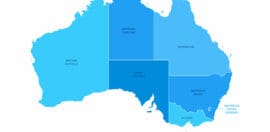The $128 billion cost to the Australian economy

10 November 2022 at 8:30 am
Addressing entrenched gender norms could provide a critical economic boost and offer a unique opportunity for philanthropists, a new report finds.
Addressing gender-based perceptions, stereotypes and biases could boost the Australian economy by $128 billion per year, increase wellbeing and create a more inclusive society.
A report released today by Deloitte Access Economics and Australians Investing in Women (AIIW) found that more flexible ideas regarding gender would unlock the potential of more women and generate 461,000 additional full time jobs.
The Breaking the Norm report links misconceptions about the roles and abilities of men and women with the structural barriers women face, to improved productivity and participation across the workforce.
Writing for Pro Bono News, AIIW board member Catherine Fox AM said that “from the first years of life, gender norms restrict and prescribe important decisions with massive repercussions on education, caring, financial security and employment.”
According to the report, progress in closing gender-based gaps including unpaid domestic work, part-time employment, occupation and industry distribution, investment, and intimate partner violence have all either slowed or stopped entirely.
Deloitte Access Economic partner Sruthi Srikanthan said there is an immediate need to shift Australia’s approach to tackling gender inequality from these singular issues to the bigger picture.
“When nearly a third of men don’t believe in gender inequality, even though gender gaps persist in nearly every aspect of our home, work and political life, our gender problem is much bigger than each individual gender gap.
“Our way of thinking has normalised differences between men and women to the point that we don’t just accept gender gaps, but we expect them.
“The way that Australia has aimed to tackle gender inequality has historically looked at different outcomes of gender norms, like the costs of childcare, the structure of paid parental leave, or discriminatory hiring practices. What this report shows is that without looking at the common source of these gender gaps, each action only plugs a leak which springs up elsewhere. We need to turn the tap off.”
Achieving the economic outcomes outlined by the report would be realised through a combination of factors. This includes more women participating in the workforce; women working more paid hours and men absorbing greater unpaid domestic labour and care; and a higher number of people working in roles that align with their skills, talent and qualifications.
AIIW’s CEO Julie Reilly said the research was a “call to action” for the philanthropy sector to address gender equality.
“Philanthropy often provides the risk capital necessary to drive social change, and there is an incredible opportunity for corporate, private and institutional funders to take a lead on breaking gender norms.
“Accelerating progress towards gender equality is the ultimate impact investment, capable of delivering a $128 billion pay day for the Australian economy.”
The Breaking the Norm report models the economic benefits of closing gender gaps in line with leading equitable countries. It analysed the significance of gender norms in society and the limitations they place on the participation and value of women in the economy.







